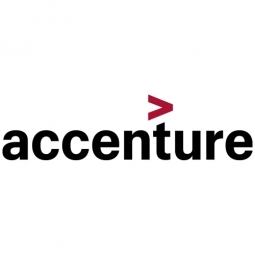Download PDF
Innovative Cloud Solution Boosts Generali Vitality's User Engagement and Retention

Technology Category
- Infrastructure as a Service (IaaS) - Cloud Computing
- Infrastructure as a Service (IaaS) - Hybrid Cloud
Applicable Industries
- Cement
- Healthcare & Hospitals
Applicable Functions
- Product Research & Development
Use Cases
- Construction Management
- Infrastructure Inspection
Services
- Cloud Planning, Design & Implementation Services
The Challenge
Generali Vitality, an innovative platform promoting a healthy lifestyle, faced a challenge in expanding its user base beyond Germany, Austria, and France. The company aimed to become a lifetime health partner to its members by offering a best-in-class user experience across all user journeys and channels. The goal was to increase user engagement and retention with a unique product feel. However, the challenge lay in optimizing and introducing new features continuously without lengthy product development and release cycles. The company needed a solution that could scale to tens of thousands of users, integrate multiple rewards partners, and be localizable for multiple markets and languages. To achieve this, Generali Vitality needed to collaborate with a partner that could provide a tailor-made solution.
The Customer
Generali Vitality
About The Customer
Generali Vitality is an innovative platform that encourages customers to lead a healthy lifestyle by offering rewards and lowered insurance premiums for taking simple steps towards health, such as regular checkups and physical activity. The company operates in Germany, Austria, and France, and aims to expand its user base beyond these markets. Generali Vitality's goal is to become a lifetime health partner to its members by providing a best-in-class user experience across all user journeys and channels, thereby increasing user engagement and retention.
The Solution
Generali Vitality partnered with Accenture to strategically enhance user experience and cloud computing, and to unify the design approach across business units and geographic boundaries. Accenture combined Fjord's design expertise with its custom software engineering and cloud capabilities to create a holistic solution for Generali Vitality and its members. In a few months, a cloud-native application was developed with world-class user experience, push-button deployments, and the adaptability and flexibility required to bring the Generali Vitality rewards experience into different European markets. The solution included a fully cloud-native development using Amazon Web Services (AWS), a custom-built responsive web application, an event-driven microservice architecture, and a DevOps and automation approach.
Operational Impact
Quantitative Benefit
Related Case Studies.

Case Study
System 800xA at Indian Cement Plants
Chettinad Cement recognized that further efficiencies could be achieved in its cement manufacturing process. It looked to investing in comprehensive operational and control technologies to manage and derive productivity and energy efficiency gains from the assets on Line 2, their second plant in India.

Case Study
Hospital Inventory Management
The hospital supply chain team is responsible for ensuring that the right medical supplies are readily available to clinicians when and where needed, and to do so in the most efficient manner possible. However, many of the systems and processes in use at the cancer center for supply chain management were not best suited to support these goals. Barcoding technology, a commonly used method for inventory management of medical supplies, is labor intensive, time consuming, does not provide real-time visibility into inventory levels and can be prone to error. Consequently, the lack of accurate and real-time visibility into inventory levels across multiple supply rooms in multiple hospital facilities creates additional inefficiency in the system causing over-ordering, hoarding, and wasted supplies. Other sources of waste and cost were also identified as candidates for improvement. Existing systems and processes did not provide adequate security for high-cost inventory within the hospital, which was another driver of cost. A lack of visibility into expiration dates for supplies resulted in supplies being wasted due to past expiry dates. Storage of supplies was also a key consideration given the location of the cancer center’s facilities in a dense urban setting, where space is always at a premium. In order to address the challenges outlined above, the hospital sought a solution that would provide real-time inventory information with high levels of accuracy, reduce the level of manual effort required and enable data driven decision making to ensure that the right supplies were readily available to clinicians in the right location at the right time.

Case Study
Gas Pipeline Monitoring System for Hospitals
This system integrator focuses on providing centralized gas pipeline monitoring systems for hospitals. The service they provide makes it possible for hospitals to reduce both maintenance and labor costs. Since hospitals may not have an existing network suitable for this type of system, GPRS communication provides an easy and ready-to-use solution for remote, distributed monitoring systems System Requirements - GPRS communication - Seamless connection with SCADA software - Simple, front-end control capability - Expandable I/O channels - Combine AI, DI, and DO channels

Case Study
Driving Digital Transformations for Vitro Diagnostic Medical Devices
Diagnostic devices play a vital role in helping to improve healthcare delivery. In fact, an estimated 60 percent of the world’s medical decisions are made with support from in vitrodiagnostics (IVD) solutions, such as those provided by Roche Diagnostics, an industry leader. As the demand for medical diagnostic services grows rapidly in hospitals and clinics across China, so does the market for IVD solutions. In addition, the typically high cost of these diagnostic devices means that comprehensive post-sales services are needed. Wanteed to improve three portions of thr IVD:1. Remotely monitor and manage IVD devices as fixed assets.2. Optimizing device availability with predictive maintenance.3. Recommending the best IVD solution for a customer’s needs.

Case Study
HaemoCloud Global Blood Management System
1) Deliver a connected digital product system to protect and increase the differentiated value of Haemonetics blood and plasma solutions. 2) Improve patient outcomes by increasing the efficiency of blood supply flows. 3) Navigate and satisfy a complex web of global regulatory compliance requirements. 4) Reduce costly and labor-intensive maintenance procedures.






